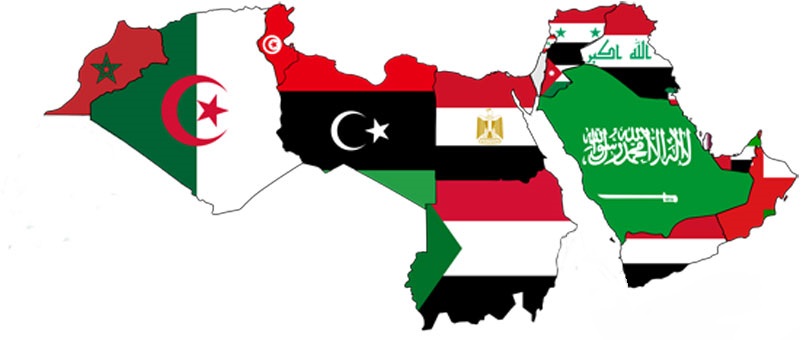Honor Is Not One Dimensional
Rich Y. (B.Th) has worked in the Arab world for eight years.
When I was new to the Arab world, I used to have a one-dimensional view of “honor” and a stock approach to discipleship with Arabs—“Those who exalt themselves will be humbled, those who humble themselves will be exalted” (Luke 18:14).
However, as I have listened to Arabs, I have reached the conclusion that honor is multidimensional. It defies one-size-fits-all approaches to discipleship. That may seem obvious now, but it wasn’t at first.

2 Kinds of Honor
Habibollah Babaei of the Academy of Islamic Sciences and Culture in Qum, Iran, distinguishes between two kinds of honor—Al-Karamah and Al-’izzah. Arabs believe that God gives Al-Karamah to all humans at birth. It is the minimum honor people have. It is, therefore, unjust to degrade someone’s Al-Karamah. Al-’izzah, on the other hand, is different. It is the sense of having high self-esteem. It includes having a high standing and refusing to bow down to factors which would dishonor you.
While Al-Karamah is a gift from God, Al-’izzah is something people earn. Some Arabs see Al-’izzah as something earned through a zero-sum equation, “I have high status because you do not,” or, “I have good children because they are better behaved than yours.” However, we must be careful not to apply this competitive, comparative approach to everyone. Arabs often think of sharing Al-’izzah alongside others. “I have Al-’izzah because my son gets high grades,” but not necessarily, “I have Al-’izzah because my son gets higher grades than yours.”
There is another difference. While Al-Karamah always relates to an individual, Al-’izzah can be felt by both individuals and collective groups. A family can share in the sense of Al-’izzah, because one member is revered in the community. A neighborhood can share a sense of Al-’izzah, because the homes are expensive.
Al-’izzah is something which is earned. People seek it because it protects and insulates their Al-Karamah from humiliation and degradation.
The Social Nuances
The difference between Al-Karamah and Al-’izzah is complex; the problem is that this one-dimensional view of honor limits discipleship. Arabs seek different nuances of honor for different reasons. No one seeks Al-Karamah, but they fear losing it if others degrade them. This fear can be a strong reason why people seek Al-’izzah to protect themselves or to protect others, such as family members and believers. On, the other hand, someone might seek Al-’izzah for different reasons. They may wish to be elevated above others for the sake of being better than them or being higher in status.
Asking questions brings dimensions to the situation. What is motivating this person to seek Al-‘izzah? Is the motivation coming from fear of dishonor and therefore working as a protection mechanism? Is it because they want to protect others? Is it because they want to degrade others? Is it a mix? Thankfully, the Bible is not one-dimensional, and it will have something very different to say into these situations.
Read this related post about the distinction between honor and dignity in Western cultures.

Interesting observations! Yet the nuances of honour should and can be translated to more tangible and universal social concepts in order to avoid exoticizing of certain populations.
In this way, it seems to me that ‘izzah is equivalent to social status (inborn or acquired), whereas karamah ressembles honor in its sense of moral reputation.
(Honour obviously has several significations that can be separated and do not always apply at once, much like nail 1) part of body; 2) iron pin.)
You don’t seek karamah, but any human individual, including Arabs and Americans, obviously needs to have an unblemished moral reputation in order to be able to function socially.
The reason for this is that a positive moral reputation, a reputation for trustworthiness and integrity, is a condition for inclusion (Ellemers 2017).
Conversely, a damaged moral reputation is equivalent to dishonor and social exclusion – social death (Kipling Williams). People simply are unlikely to befriend individuals who are known as thieves, rapists or murderers. Imagine being accused of theft, fraude, rape, or murder? Or your father is a rso …?
Interested in this way of reasoning? Contact me, or read: Honor Related Violence. A New social-psychological Perspective. Routledge, 2018.
As a Lebanese Arab, i would add that we sometimes use Karama to denote both concepts you mention here.
Thank you Nabil for this remark. It is difficult to find people who distinguish clearly between these concepts, especially in foreign languages. During the research for my book I found that in different Arab languages there are different meanings assigned to one and the same word.
It seems to me that Jesus spoke of separating these two types of honour as a corruption of God’s intent — that God meant for them to function together. A couple prime examples of this would be where he spoke of cleaning the outside of the cup but leaving the inside dirty, or of being whitewashed tombs.
In these analogies I think Jesus was indicating that our moral honour, our reputation before God and our private moral integrity, needs to be consistent with the public honour that we are careful to maintain, our reputation with others.
Obviously there will be times when our social reputation will suffer for doing right, but that is a separate truth not in view in these analogies. Perhaps that issue is addressed more through the beatitudes.